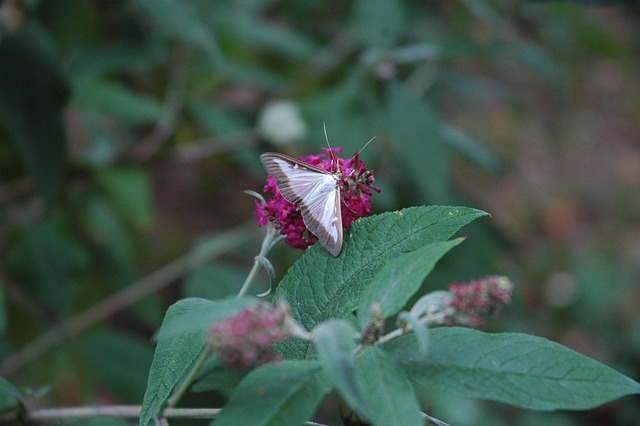Integrated Pest Management (IPM) is a sustainable approach to pest control that integrates biological, cultural, and physical methods, reducing reliance on chemical pesticides. Professional pest control services play a crucial role in IPM by providing expert strategies for both residential and commercial spaces, focusing on eco-friendly practices while ensuring effective rodent prevention and removal. Key tactics include proper sanitation, advanced trap systems, biological controls, and targeted applications of least-toxic pesticides. By combining these methods with consultation, prevention tips, and regular inspections, IPM offers a holistic solution that protects people, pets, and ecosystems while maintaining healthy environments.
“Unveiling the secrets to sustainable pest management, this article explores Integrated Pest Management (IPM) as a holistic solution. IPM offers an effective, environmentally conscious approach to pest control, integrating biological, cultural, and chemical methods.
We delve into the key components, starting with understanding IPM’s core principles. Professional pest control services play a pivotal role, providing specialized knowledge and eco-friendly solutions. Additionally, we offer practical tips for both residential and commercial spaces, ensuring effective rodent prevention alongside general pest prevention and removal. Discover how these strategies contribute to a greener, more sustainable environment.”
Understanding Integrated Pest Management (IPM): A Holistic Approach to Pest Control
Integrated Pest Management (IPM) is a comprehensive strategy that combines various methods to control and prevent pest infestations, focusing on long-term sustainability. Unlike traditional pest control practices, which often rely heavily on chemical pesticides, IPM takes a holistic approach by considering all aspects of an environment, including biological, cultural, and physical factors. This method aims to minimize the use of synthetic chemicals and promotes the use of eco-friendly pest prevention techniques. By understanding the life cycles of pests, implementing regular monitoring, and adopting preventive measures, professional pest control services can offer effective solutions without compromising the health of people or the environment.
IPM involves a multi-pronged approach, such as proper sanitation, trap systems, biological controls (like introducing natural predators), and targeted applications of least-toxic pesticides when necessary. For both residential and commercial pest removal, this strategy ensures that any chemical treatments are used judiciously as part of a broader plan. This not only helps in effective rodent prevention and removal but also contributes to the overall health and well-being of buildings’ occupants and surrounding ecosystems.
The Role of Professional Pest Control Services in IPM Programs
Integrated Pest Management (IPM) programs rely heavily on professional pest control services to achieve sustainable results. These experts play a pivotal role in implementing effective pest prevention and removal strategies, especially in residential and commercial settings. With access to advanced tools and techniques, they can provide tailored solutions for various pests, from common insects to rodents. Professional pest control services not only offer efficient extermination but also focus on eco-friendly pest prevention methods, ensuring minimal environmental impact.
In IPM programs, these professionals contribute by offering valuable pest prevention tips and knowledge. They help identify potential entry points for pests, recommend appropriate treatments, and monitor the effectiveness of measures taken. By combining chemical interventions with non-chemical alternatives like sanitation, exclusion, and biological controls, they create a comprehensive strategy that targets pests while preserving the health of people, pets, and the ecosystem.
Eco-Friendly Pest Prevention Tips for Residential and Commercial Spaces
In both residential and commercial settings, adopting eco-friendly pest prevention tips is a proactive approach to achieving sustainable results in pest management. One effective strategy is to maintain a clean and clutter-free environment, as pests are attracted to food sources and hiding spots. Regularly cleaning surfaces, sweeping floors, and ensuring proper waste disposal reduces the allure of these spaces for pests. Additionally, sealing entry points such as gaps around pipes, windows, and doors can prevent invaders from entering. Natural repellents like citronella, peppermint oil, or neem oil can be used as eco-friendly alternatives to chemical pest control.
For residential areas, focusing on rodent prevention and removal is crucial. Keeping food securely stored and eliminating water sources can deter rodents. Commercial spaces should implement strict hygiene protocols, regular deep cleaning, and structured waste management systems to discourage pests from thriving. Employing professional pest control services specializing in eco-friendly pest extermination solutions ensures these practices are executed effectively while minimizing environmental impact.
Effective Rodent Prevention and Removal Techniques: Complementing IPM Strategies
Integrated Pest Management (IPM) programs offer a holistic approach to dealing with pests, focusing on prevention, early detection, and non-chemical control methods. When it comes to rodents, an effective IPM strategy includes both pest prevention and removal techniques tailored to residential or commercial settings. Property owners and managers can implement various eco-friendly pest prevention tips to deter rodents from entering buildings, such as sealing entry points, maintaining proper sanitation, and storing food items securely. Regular inspections are crucial for identifying potential rodent habitats and signs of infestation early on.
Professional pest control services play a vital role in managing invasive rodent populations. Trained technicians employ humane and eco-friendly extermination solutions, ensuring the safety of occupants and the environment. For residential areas, these services might involve setting up traps or using non-toxic repellents. In commercial settings, where larger infestations are more common, integrated pest management professionals may utilize heat treatment, baiting systems, or other specialized techniques to eradicate rodents completely. By combining these professional interventions with consistent prevention practices, IPM strategies offer sustainable results in the long term.
Integrated Pest Management (IPM) offers a sustainable and comprehensive solution for both residential and commercial spaces, combining eco-friendly practices with professional expertise. By understanding the holistic approach of IPM, which emphasizes pest prevention and effective yet environmentally conscious control methods, individuals can actively contribute to their own space’s safety and preserve the ecosystem. Implementing these strategies, including robust pest prevention tips and rodent management techniques, ensures a healthier environment for all while minimizing reliance on harsh chemicals. Therefore, adopting IPM principles is not just a step towards effective pest removal but also a significant contribution to long-term sustainability.
